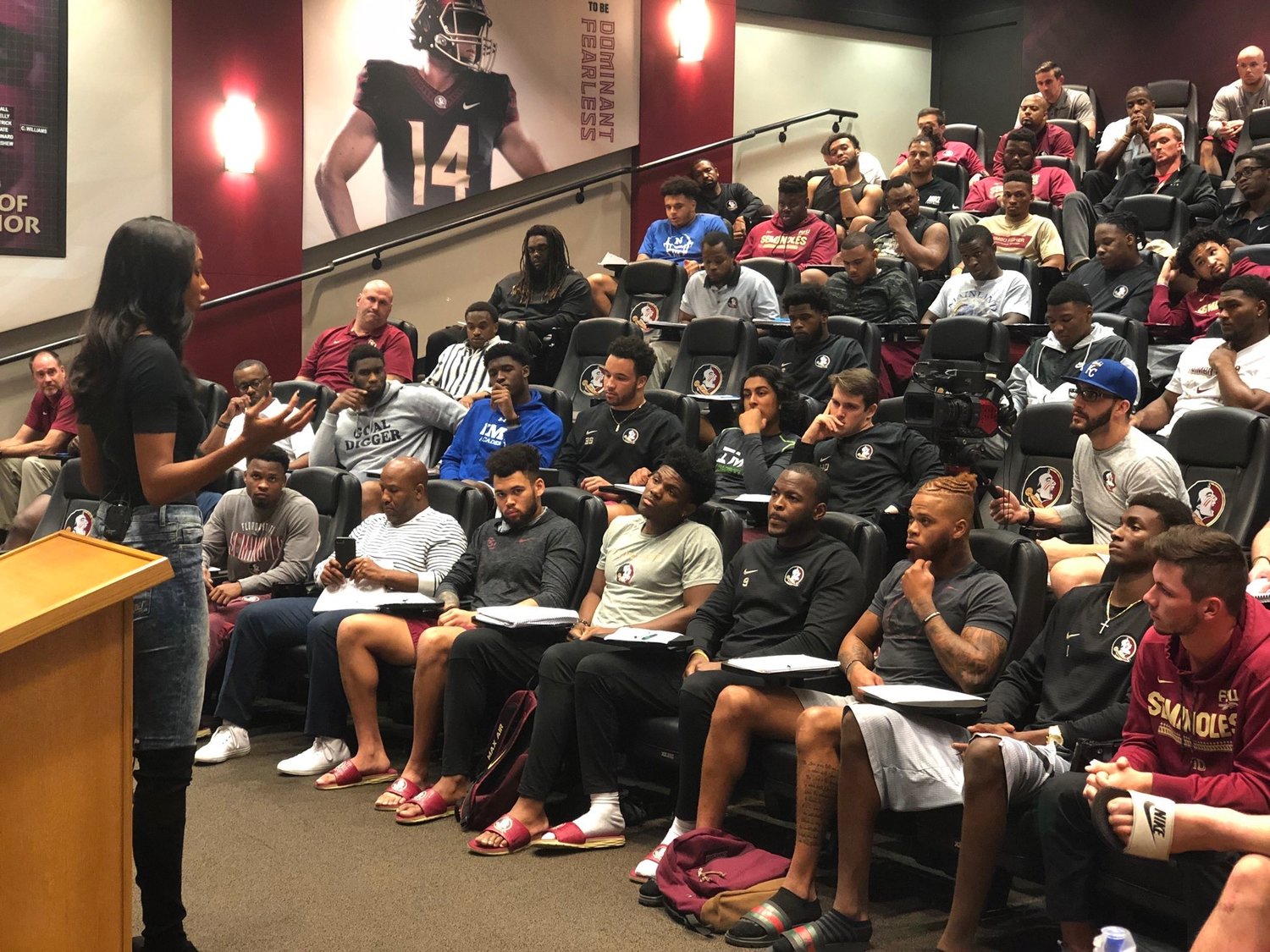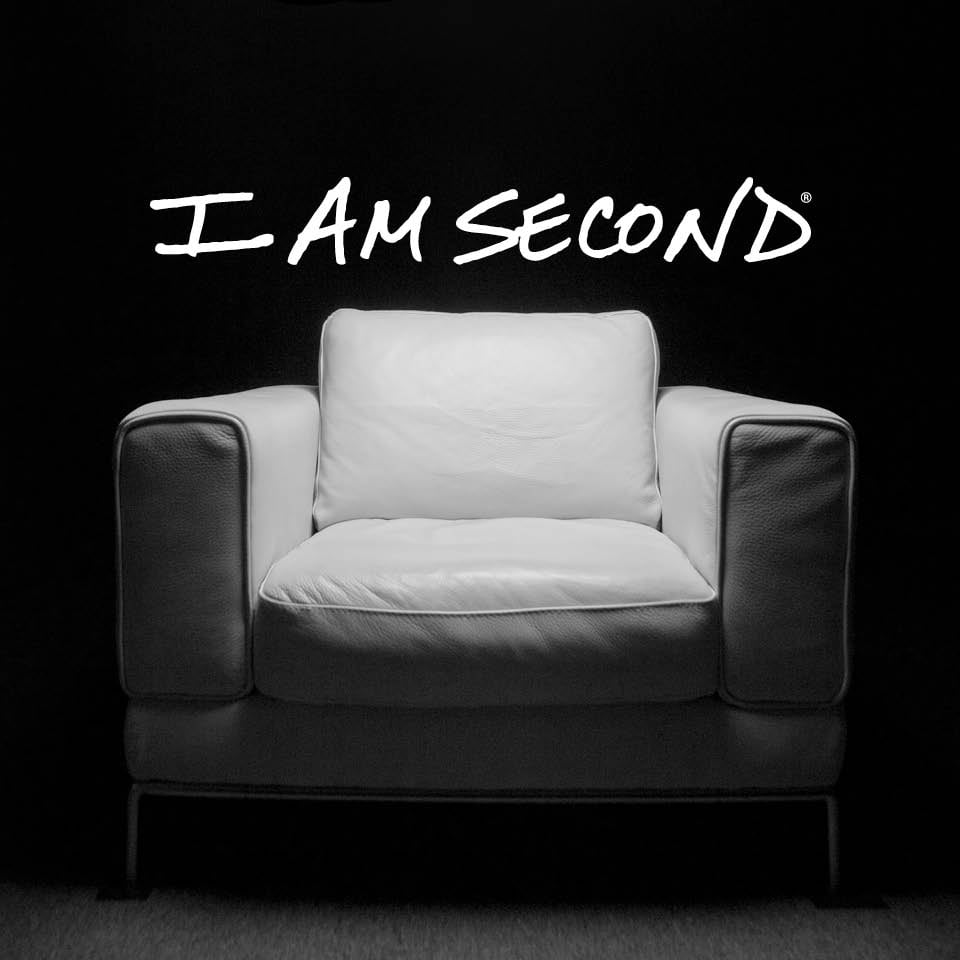ESPN reporter and analyst Maria Taylor is tall. By the ninth grade, she was 6'2". Her height defined her in the eyes of teachers, fellow students, random strangers. They commented on it, teased her about it, replaced her name with tall nicknames. Tall girl. Freak. Jolly Green Giant. Eventually, her height and speed and ability opened the door for a new word to define her: athlete. She racked up an impressive resume of awards in volleyball and basketball at her high school in Atlanta, and earned a scholarship to play both sports at the University of Georgia.
Then, something happened.
"It was in the spring—the off-season," Maria writes in Guideposts Magazine. "One of my volleyball teammates, who worshiped the sport, came into the locker room in tears. 'I need to quit,' she said. 'I’m not meant to do this.'...She still loved the game, but she sensed that God had something else in mind for her...I’d heard about people whose lives were guided by what they believed. This was the first time I met it face-to-face, in my locker room, in someone my age no less. Her face was aglow with strength and clarity of purpose. I looked at her and thought, I want what she has. To live like that."
That conversation with her teammate changed something for Maria, shifted something fundamental into focus about who she wanted to be and how she defined herself and her success. In an interview with podcast host, Chris Craft, Maria said, "It was a long and tedious journey – figuring out that I’m not the athleticism. I’m not any of the skills I have. I am who God is in me."
After graduating from university, Maria became the first black woman to host ESPN's College GameDay since it began in 1987. First is another word used to define. It creates expectations and carries weight. It evokes a history that didn't include her, but Maria's foundation of faith allows her to acknowledge that history of discrimination, and navigate the often exhausting work of being the first to break new ground with purposeful energy. Finding her identity in her relationship with God empowers her to move through the expectations, assumptions and prejudice of her industry, and tell her own story with boldness and transparency to encourage and inspire others.
"Sometimes [in the sports industry] you feel like, there's no place for me here...at the end of the day when you look around and absolutely no one looks like you or has anything close to the same experience as you, it can feel like a weight on your shoulders," she told Craft. "I'm very transparent about what my insecurities are being a black female in sports. I'm very transparent about the ways that I've felt in [certain] situations...what I try to do with my story is just be honest – like brutally honest – about things I've been through – trials and tribulations, and mistakes that I've made because...that's my way of using my story to help someone else persevere through their journey."
"I have to remind myself that it's important for my face to be on [my] show, and it's important for people of color, women of color to see me...I just want everyone to know that anything is possible, whatever it is...come shadow me and see, 'Okay, well if she can do this, then I can probably do that.'"
Our current cultural moment demands that we define ourselves quickly. Our identities are captured fast, in easily digestible bites: A line on our resume. The headline of an article. A profile picture. One hundred and forty characters. Maria's twitter bio reads like this: Talk sports for a living on ESPN / Ephesians 2:10. Even in a landscape that tends to resist complexity and nuance, Maria has found a way to communicate the truth of who she is and how she chooses to live.
"It is God himself who has made us what we are and has given us new lives from Christ Jesus," Ephesians 2:10 says. "We should spend these lives in helping others."
In 2014, Maria and Corinne Milien co-founded The Winning Edge Leadership Academy, a non-profit organization committed to mentoring young women and people of color in the business of professional sports, just as Maria and Corinne were mentored, helped and encouraged in their own lives and careers.
 Maria speaks to the Florida State football team
Maria speaks to the Florida State football team
These days, Maria Taylor has a lot of words that attempt to define her: Athlete. Analyst. Host. Reporter. Sister. Daughter. Black woman. Ground-breaker. Speaker. Mentor. Friend. But, there's one thing in which Maria chooses to anchor all of these facets of herself, her life, her history, her characteristics and her achievements:
"I have some great credentials and a lot to be grateful for," she writes. "But what I hold on to more tightly than any mic is this: I am God’s creation. Like you. Like all of us. Wonderfully made."
We love stories like Maria's of people living out their faith in real and practical ways and giving of their time, their energy, and their talent to inspire hope and change in our world. At I Am Second, we call that Living Second – putting God first by serving others. You can find more information on volunteering and supporting Living Second here.
You can also check out these stories of athletes that are living second in their lives and their sports from Wayne Simien, Albert Pujols and Greg Ellis.
Photos via: winningedgeleadership.org
Previously on Second Draft:
Three Seconds: Baron Batch, Christine Petric and Gabe Salazar on Identity
David and Tamela Mann's Advice for a Strong Marriage on 'Good Morning America'
New Year's Checklist to Start Strong in 2019

Blogs written by the I Am Second editorial team.